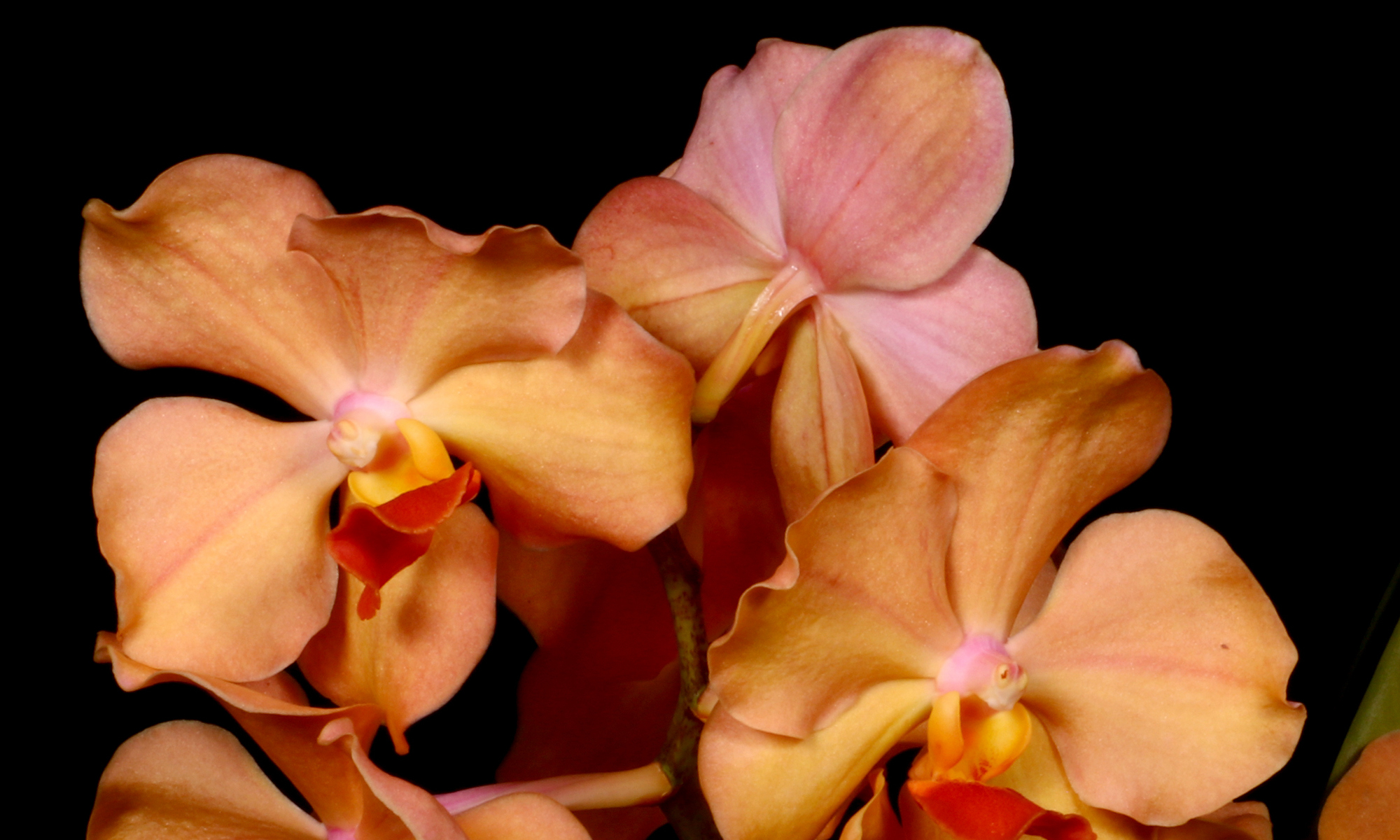Progress of the Season: June
By Martin Motes (with permission)
May has proved to be drier and a little cooler than typical. The swings of day to night temperature have been ideal for rooting most genera but vandaceous in particular have been exuberant. Without the typical heavy rains to wash them away and refresh alternate food sources in our yards, Thrips have also taken altogether too much pleasure in the moderate and dry conditions. If a week passes without rain apply the recommendations in Florida Orchid Growing to control Thrips.
The unexpectedly wet conditions of April have left an unusually legacy this year: an abundance of half grown Cuban garden snails. Remember, snail bait is very effective if applied properly. It is bait! One small pellet per 2-3 square feet will do the job and pose no threat to domestic animals. Repeat in 7-10 days as bait breaks down and newly hatched or newly arrived snails will always show up. See Florida Orchid Growing pp. 178-180.
A dear friend and very experienced grower surprised me with the news that she had destroyed her entire Vanda collection because she could not control the “Thai Disease” Phyllosticata capitata. When she replaced the plants to her chagrin the disease returned. A better understanding of this disease and its control needs to be more widespread. The disease affects the vascular tissue of individual leaves and spreads upward in the plant by infecting new leaves as they emerge. It is not systemic but problematically can not be detected until the characteristic rough diamond shaped sporing bodies appear. Because of this life cycle infected plants can go undetected until the fruiting bodies emerge after the plant has been stressed by the cold of a Florida winter.
My friend’s reaction is extreme but understandable because of the elusive nature of this disease. It can be controlled and eliminated by the methods advocated in Fla. Vanda Growing Month by Month. Not buying plants that have been imported from Thailand is also too extreme; however the wise orchidist should ask: Has this plant come from Thailand? Has it been grown over a Florida winter? If so the buyer can be confident that the plant is free of this otherwise invisible disease.
[Note: this is an excerpt from Martin’s monthly newsletter. Subscribe at http://www.orchidworks.com/redland/motes.html The “dear friend” mentioned above is our own Dot Henley.]
